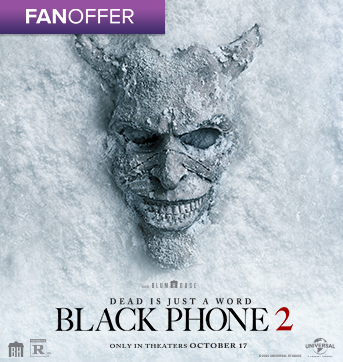
Who wouldn't want to live forever in good health and vitality? As great as that sounds, though, horror movies are around to remind us that very long life has its downsides, too, especially when immortality requires certain, er, concessions to be made -- like killing other people.
Here are just a few recent cinematic examples that point out the possible pitfalls for those who seek to live forever. (Hint: there's always a catch.)
Dracula Untold (2014)
Luke Evans stars as Vlad the Impaler, a mighty warrior who now seeks peace. Foreign invaders, however, threaten his people and his family. As the clip below shows, he is then willing to accept the temporary power of a vampire in order to protect his loved ones. He has no particular interest in living forever, but when push comes to shove, family comes first.
What We Do in the Shadows (2014)
Presenting a very different angle on living forever as a vampire, this horror comedy from New Zealand suggests the many challenges of adapting to life in the 21st century when you're a few hundred years old. It ain't easy!
Spring (2014)
Evan (Lou Taylor Pucci) is having a few problems at home in the U.S., so he heads off to Italy in search of a new life. Soon he meets Louise (Nadia Hilker), who has a few secrets of her own. Without giving too much more away, Louise epitomizes the dilemma of those whose lifespan greatly exceeds that of others, which makes falling in love a very dangerous proposition.
Deadgirl (2008)
Two teenage boys discover a body in the basement of a mental asylum. At first they believe her to be dead, but then she appears to be alive and capable of surviving all attempts to make her dead. What kind of sick immortality is this? As things develop, it's not ideal for anyone.
Cronos (1993)
Guillermo del Toro made his feature directorial debut with this dark tale of immortality revolving around the key to eternal life, the Cronos device. Men have searched for the device for centuries; when it finally found, it lives up to its reputation, but it exacts a severe penalty upon the user.









